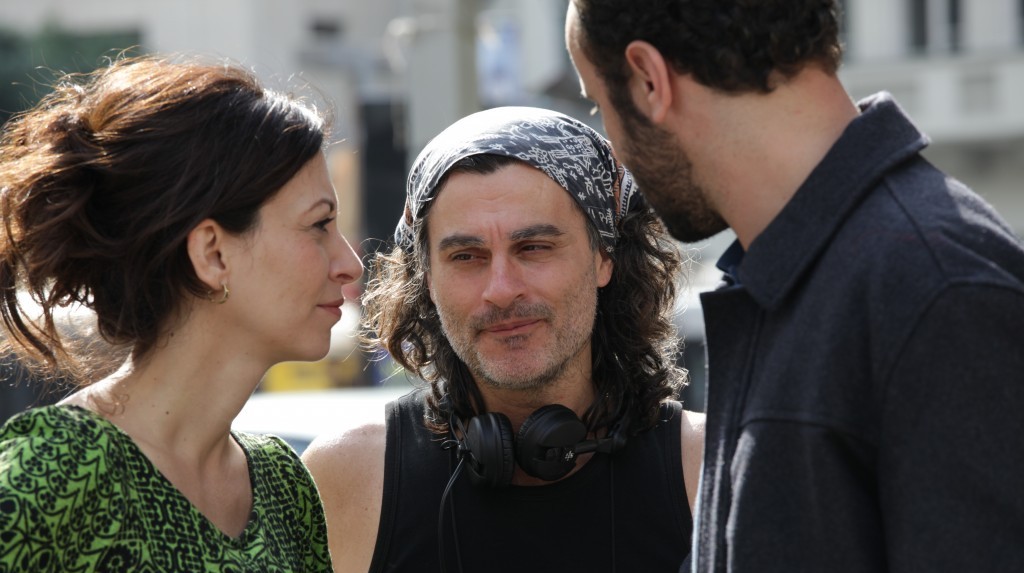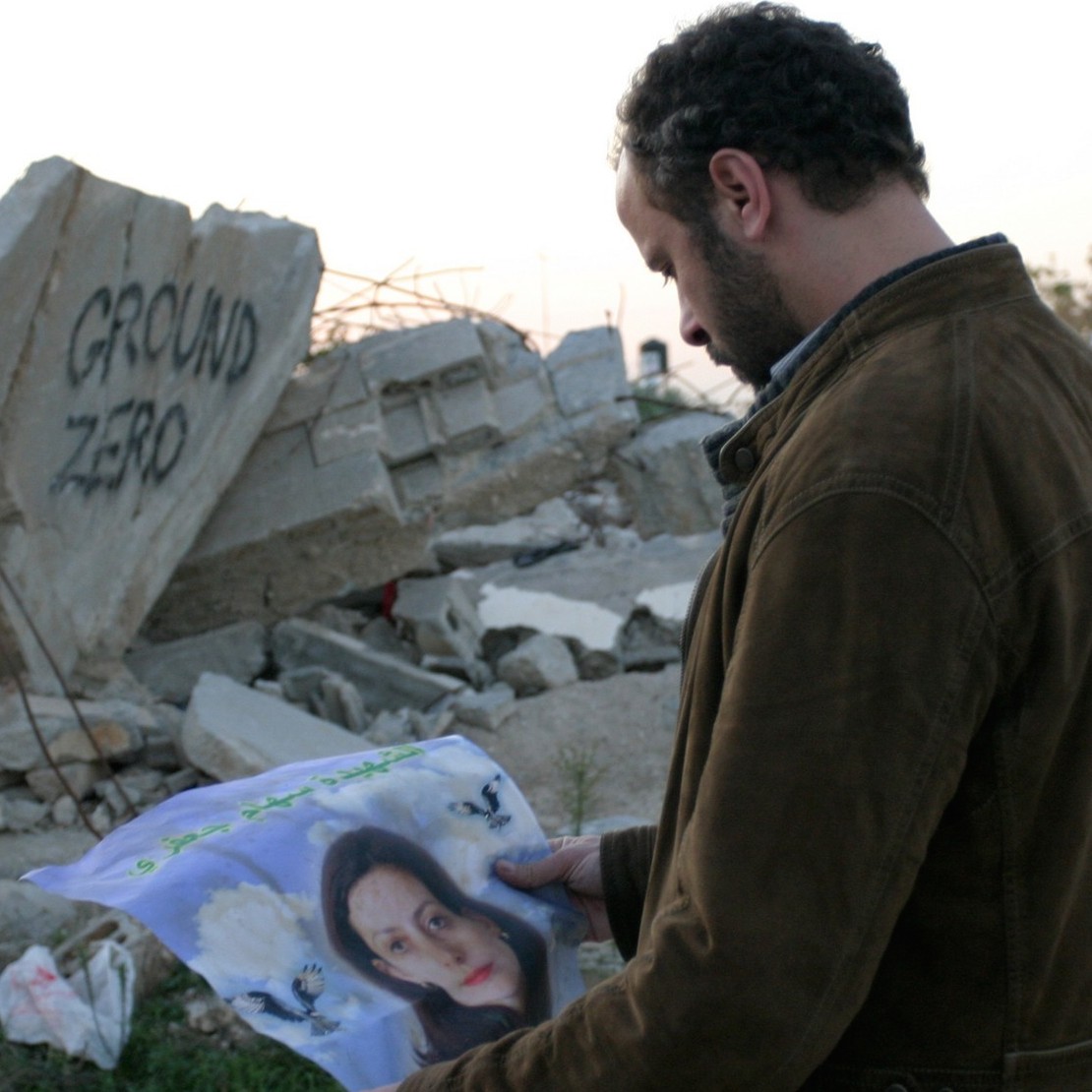Lebanese filmmaker Ziad Doueiri talks about his controversial new film
‘I don’t want to carry the burden of the Middle East on my shoulders’, remarked a frustrated and slightly irked Ziad Doueiri, sounding as if he’d had to answer the question hundreds of times. I was talking to him about his new film, The Attack, currently screening in various cities in the US, and that has been the subject of much controversy in the Arab world. Shot in Israel and Palestine, Doueiri’s film, based on Algerian author Yasmina Khadra’s novel of the same name, tells the story of Amin Jaafari, a young Palestinian doctor who has - to the best of his abilities - managed to blend into the upper echelons of Israeli society. Despite his Palestinian identity, Amin works at a prestigious hospital in Tel Aviv alongside his Israeli colleagues, whom he chats with in fluent Hebrew, and is even granted an award and a standing ovation by his peers for his exemplary work. ‘Not that it matters,’ though, says Jaafari, as ‘every Jew is a bit of an Arab, and no Arab can deny he’s a bit Jewish’. For a while, the Palestinian Jaafari seems to be enjoying the best of Israeli high life, until an attack takes Tel Aviv by surprise. After Amin’s wife, Sihem, is identified as the perpetrator of a suicide bombing on a school bus full of Israeli children, Jaafari’s world is turned on its head, as he slowly begins to realise that perhaps he never really knew who his wife was, after all these years. Though incredulous at first, the sight of his wife’s charred body – sans abdomen – confirms his worst fears, and in turn, Amin travels to Palestine in search of answers.
Despite the official bans the film has earned itself in Doueiri’s native Lebanon, as well as throughout the Arab world, antagonism towards the award-winning Lebanese filmmaker on a more personal level is also palpable. After my chat with Doueiri, I told a few of my Arab friends that I’d spoken with him about this particular film, quoting his remark about not wanting to carry the ‘burden’ of the Middle East upon his shoulders. ‘He threw [the burden] away, and turned his back [on us] when he chose to film in Tel Aviv – when there were alternatives – and collaborate with his people’s enemies’, a Saudi friend of mine retorted, quickly backed by a Lebanese acquaintance. At the same time, however, some in the Arab world view Doueiri’s film as a welcome initiative. ‘This is art’, replied one of my Moroccan friends. ‘Should we also condemn Yasmina Khadra for telling us a story that took place in Tel Aviv?’ One of my Lebanese friends seemed to share more or less the same opinion. ‘This [film] is very important … He made a very brave move, and I don’t see why people hate him for it’. Doueiri doesn’t seem the least dismayed by the controversy he’s stirred, though. ‘Look’, he told me assertively, ‘so far the reaction has been terrific … we knew people would be divided from the start’. And what about those who hate his film? ‘They didn’t come shake my hand’, he said, rather nonchalantly.

Ziad Doueiri (centre) filming The Attack
Not having read Khadra’s novel, I was curious to find out what inspired Doueiri to base his film on it. Naturally, my bets were on the focus on the Palestinian question, and, taking into account Doueiri’s earlier West Beirut, the fact that it focused on another troubled corner of the Middle East. ‘[I liked the fact that] the novel was not a black and white novel. It shows the complexity of those two [Palestinian and Israeli] perspectives. Plus,’ he added, ‘it has some very interesting detective work’. Indeed, Doueiri’s film is anything but black and white. Rather than vilifying or extolling either ‘side’, Doueiri instead focuses on bringing Khadra’s story to life. ‘This is part of the way I think’, he said. ‘Everybody has a perspective, whether Jew or Arab, right or left wing, etc.’ To further expound his preference for multiple perspectives, he invoked the impact brought about by two trains colliding at high speed. ‘From a dramatic perspective, showing both the pros and cons on an equal force makes for a more compelling drama.’
‘Look’, he told me assertively, ‘so far the reaction has been terrific … we knew people would be divided from the start’. And what about those who hate his film? ‘They didn’t come shake my hand’ …
One thing I couldn’t help notice as I talked to Doueiri was that for the most part, he focused on himself and the film, despite my many questions about his thoughts – as a filmmaker – with respect to Palestine, the complexities of his characters, and the ongoing conflict in the region. With an earnestness that was almost too blunt at times, Doueiri explained how above all else, his chief priority was to make a compelling film. ‘I do not have any responsibility’, he quickly answered me when I asked whether Middle Eastern filmmakers have any sort of obligation to counter negative Western stereotypes and propaganda. ‘My main responsibility is to make a film with a good dramatic element. It’s hard enough to shoot and finance it – you can’t ask filmmakers to do more than that.’ OK, I thought, but what were his feelings about a multifaceted character like Amin Jaafari, who integrates into Israeli society and is, in a sense, looked upon as a traitor by his wife and compatriots? Would Doueiri feel the same about him or a similar individual in his position? ‘I have not been an expert on Palestinian-Israeli affairs’, he admitted. ‘All I did was to see, in a dramatic context, what would be more interesting for this character’. Doueiri made no bones about it. ‘I was not trying to make a statement … I don’t know how to send messages.’
For some reason, Doueiri’s remarks left me feeling a bit disillusioned. Watching his film, I felt that I was witnessing a work by an Arab filmmaker who had been inspired by the Palestinian-Israeli conflict, and who had something to say about it; there had to be more than just a compelling story that had made him want to direct such a film, I thought. Towards the end of our conversation, I asked Ziad what role he felt Middle Eastern filmmakers and artists could play within the context of the Palestinian question, and whether or not the arts could bring about meaningful change in the region. ‘Look’, he told me again, sounding more assertive than before, ‘all [Arab filmmakers] can do is make a film that holds from beginning to end. I cannot solve Middle Eastern problems’. Perhaps we expect too much from Middle Eastern artists, I reckoned, recalling Palestinian artist Suliman Mansour’s famous The Bearer of Burdens painting; and maybe, if I were in Doueiri’s position, I wouldn’t have minded letting a load off my shoulders as well. ‘We did not set out to change people’s mentality’, he said. ‘It’s not what I do for a living. It’s a lot simpler than you think.’
As ‘simple’ as Doueiri’s philosophy may be, The Attack is an incredibly rich and multilayered film that explores the Israeli-Palestinian conflict from many perspectives. Here, Doueiri does not point fingers, but rather animates Khadra’s complex characters, who are rather unlike the ones seen in ‘traditional’ narratives about the conflict. ‘We didn’t want to make a judgment – we wanted to show both perspectives’ he emphasised. As unsavoury as such perspectives may be to some, they are perspectives nonetheless, and their inclusion in Doueiri’s film may potentially be viewed as a step towards further fostering cross-cultural understanding and dialogue. ‘[Alternatively] we could play the “I hate you” game’, remarked my Moroccan friend. ‘Movies like the one Ziad gave us should be encouraged more and more, so that we could maybe see Middle Eastern cinema rise one day - inshallah.’

